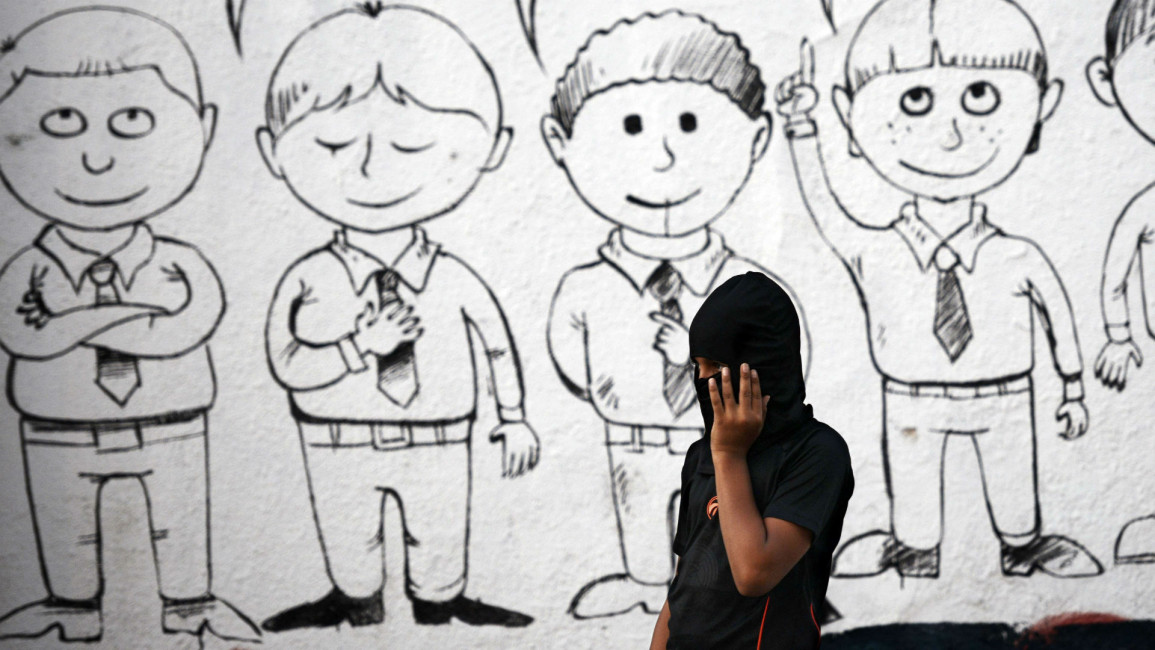
West ignores Nimr death sentence
The death sentence handed down 15 October by a Saudi court on a senior Shia religious leader has been given little prominence in most western media outlets and I am struggling to find a reason why.
First the facts of the case as I know them.
Nimr al-Nimr, who holds the position of ayatollah, is a prominent critic of the Saudi regime. He has been arrested several times. His most recent arrest and the one that has led to him being sentenced to death happened under controversial circumstances.
The sheikh was shot four times in his legs in July 2012 while travelling in a car in Saudi Arabia’s Eastern Province. The authorities have said that shots were fired at officers as they attempted to halt the car and that in returning fire Nimr al Nimr was wounded. His family say that no shots were fired from the car, that the occupants wer
| Saudi Arabia has made it perfectly clear where the red line rests when it comes to criticism. |
e unarmed and that the shooting was a deliberate intent to injure.
The family also allege that the cleric, who has been detained ever since, is a victim of torture, a charge the Saudi authorities have denied.
After the death sentence was handed down, his brother, who was subsequently arrested, tweeted that Sheikh Nimr had been convicted of seeking "foreign meddling" in the kingdom, "disobeying" its rulers and taking up arms against the security forces. The cleric has spoken out for several years against the Saudi government and in support of the majority Shia population of the Eastern Province.
Shia have long complained of discrimination and ill-treatment and are resentful that much of the wealth from the oil-rich region has gone to the ruling al-Saud family leaving them impoverished and disadvantaged. When, in February 2011, mainly Shia protesters took to the streets of neighbouring Bahrain’s capital city Manama – the island kingdom is linked to the Eastern Province by a causeway – Nimr al-Nimr spoke in support of the protesters.
And when the peaceful protest in Manama was brutally crushed with the aid of Saudi troops, the cleric stepped up his criticism. However, he couched his denunciation carefully, telling the BBC at the time that he supported "the roar of the word against authorities rather than weapons... the weapon of the word is stronger than bullets, because authorities will profit from a battle of weapons".
It was not enough to save him from arrest.
When it happened, thousands poured into the streets to protest and three were shot dead by police. The sheikh has a huge following among young Shia in the Eastern Province, Bahrain and elsewhere in the region. And their support, together with the Saudi ruling family’s fear that Iran is behind the unrest, has made the government anxious to send a strong warning to dissidents.
Indeed, the prosecutor in the case had called for beheading and crucifixion, a gruesome procedure in which the headless corpse is put on public display. That alone should have provoked cries of outrage around the world. But we have an unfortunate tendency to look the other way when it comes to commenting on what sometimes passes for justice in Saudi Arabia.
Perhaps our silence is the price we pay for the uninterrupted flow of hydrocarbons. Or the sale of billions and billions of dollars of military hardware. Or the political and business ties that have been carefully nurtured over decades.
And while most Saudis I know will quietly express some dismay at Nimr al-Nimr’s sentence, none who live there, for perfectly understandable reasons, will come out publically and condemn an atrocious act that makes a mockery of justice.
Saudi Arabia has made it perfectly clear where the red line rests when it comes to criticism.
But does that mean the rest of us should remain silent?
Opinions expressed in this article remain those of the author and do not necessarily reflect the opinions of al-Araby al-Jadeed, its editorial board or staff.



